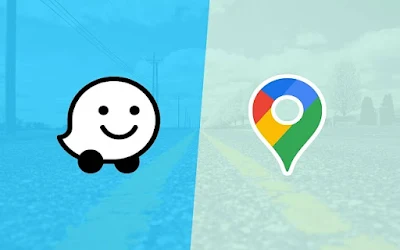either Waze or Google Maps. Which app is ideal if you do not want to use the internet and your mobile data is limited?

In the digital age, navigation apps like Google Maps and Waze have become essential tools for drivers. However, when mobile data is limited, choosing between one or the other can make all the difference.
Both platforms offer similar services, but their impact on data consumption is significantly different.
A recent study by the Organization of Consumers and Users (OCU) analyzed the data consumption of these apps during a 120 km highway trip, revealing significant differences.
Waze took up about 8.3 MB, while Google Maps took up 17 MB, more than double that. But why is this happening?
Waze’s simple design is the key to its low data consumption. Its main focus is on making driving easier with visual and collaborative alerts about traffic, accidents, and obstacles on the road. This information comes from users themselves, who contribute in real time.
Waze avoids using complex graphics or additional features that don’t directly benefit the driver. This approach not only reduces data consumption but also makes the app more flexible on devices with lower processing power.
On the other hand, Google Maps offers a more complete and immersive experience. In addition to road directions, it includes features such as street view, satellite imagery, and indoor maps of places like shopping malls or airports. These features make it a versatile tool, ideal for tourists and users who need more than just a driving guide.
Why is Waze better than Google Maps in terms of alerting you to speed cameras and radars?
However, all these functions require constant data transmission and consumption. In addition, Google Maps uses artificial intelligence to analyze and update traffic conditions in real time, which also contributes to increased consumption.
The choice between one app or another depends on your specific needs. If saving data is your priority and you only need basic information to get to your destination, Waze is the better choice. Conversely, if you are looking for a more complete service with additional details about the environment, Google Maps is the better choice, even if it involves higher data costs.
While each app has its own characteristics that affect its usage, there are ways to reduce the impact on your mobile data. For example, Google Maps lets you save specific areas for offline use. This is ideal for long trips or areas with poor coverage.
In Waze, if you set your destination while connected, the app will be able to work even if you lose signal. Another option is to disable 3D views, extra layers, or unnecessary notifications, which can significantly reduce data usage on both platforms.
While Waze is more data-efficient, Google Maps offers a richer, more complete experience. The final decision comes down to your priorities: saving data or getting a more versatile tool. Whatever you choose, taking advantage of offline maps and settings options can make both apps more useful without impacting your data plan.
3 Things I Like About Waze That Google Maps Doesn't

